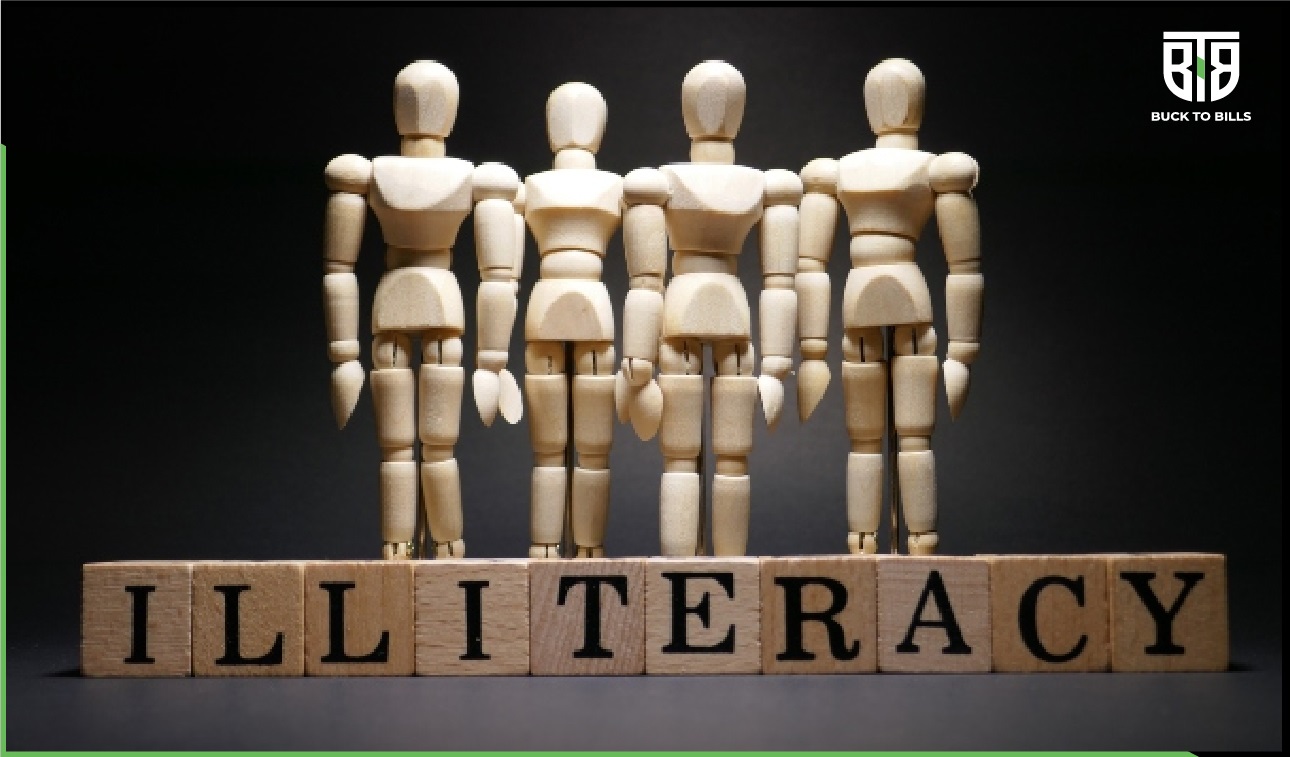The first few years of a child’s life are very important. Most of the cognitive development happens within the first 6 years of the child’s birth. A child’s 80% of brain development happens by the time he reaches 3 years. Unfortunately, the quality of education a child receives during his early years largely depends on his economic status which deprives them of their right to education, equal opportunity, and a better quality of life. The children who receive a sub-optimal level of education not only stay behind in the classroom but also in acquiring social skills. And the problem is widely visible in our extended society and communities. In a report released by UNESCO based on 2001 statistics, the illiteracy rate happens to be 34% in the world.
Illiteracy is a social problem because of the lack of adequate academic skills is pushing the world’s human force into vulnerability. Lack of education follows the sub-optimal quality of job opportunities, no change in social status, and poverty levels remaining the same.
What is illiteracy?
Illiteracy is a situation where a person can neither read nor write or who has not been taught the reading and writing skills.
What are the causes of illiteracy?
- Poverty: Poverty has been recognized as one of the major causes of illiteracy. Poverty is a social situation of a person with low income and consumption where he lacks adequate physical necessities, assets, and income. In such a situation, a poor person cannot afford to be literate considering his financial status.
- Attitude: The attitude of civil society, as well as the governments, has not let education open to all social sectors. While governments adopt a negligent attitude towards educating the poor and disadvantaged, already poor and illiterate people are not realizing the potential of education.
- Inadequate policies and priorities: Both the government and the people have set their priorities in the wrong direction. While there is a lack of political will to make education accessible on a universal scale, civil society is not rightly seeing the need and potential of education.
- Traditions and values: The traditions and values of a few of the nomadic people have blindfolded them towards the need for education. Their traditions and livelihood opportunities have not enabled them to recognize the need for education.
- Lack of access: People who don’t have education facilities or who live far away from educational institutions are not able to learn because of lack of accessibility.
- Poor and inadequate facilities: Even though there is accessibility, the poor quality of education, classrooms, and infrastructure is rendering them illiterate.
- Social evils: Social evils which are still present in a society like child marriage, child labour, and slavery are the major impediments in the path to attain full literacy world-wide.
- Population explosion: Overpopulation is one of the reasons for inadequate educational facilities. As there are limited resources available to serve more people, the resources are not sufficient to meet the educational needs of all the population.
 Consequences of illiteracy:
Consequences of illiteracy:
- Limited ability to obtain information.
- Lower-income and low-quality jobs. Illiteracy is inevitably linked with the sub-optimal level of jobs.
- Reduced chances of professional development and improving social status.
- No development in financial position and restrained access to education to their offsprings. This situation turns into a vicious cycle of lack of education, low-quality jobs, and reduced access to education. This cycle continues without bringing changes in literacy rates, employment rates, and improved social status.
- Impact on health: Illiterate individuals employed in the unorganized sector are more prone to workplace accidents and take longer recovery time.
- Trouble reading and understanding information leading to limited social participation.
 Here are a few ways by which the world can combat the literacy crisis:
Here are a few ways by which the world can combat the literacy crisis:
- Developing adult literacy programs tied to employment generation opportunities.
- Adult literacy programs involving educating parents and elderly people.
- Awareness and advocacy campaigns to combat the negative attitudes of people.
- Using incentives to attract children to school.
- The construction of more and more institutions can reduce the problem of lack of accessibility.
- Establishing access and equity scholarships to encourage gender and social parity in educational institutions and reduce gender, social, and economic barriers.
- Training and mentoring teachers and all the staff included improving the quality of education.
- Ensuring adequate resources along with better infrastructure.
- Increase governmental funding on the education sector across the globe.
- Worldwide fundraising to raise awareness and empathy for disadvantaged people who lack access to education because of social and economic status.
- Encouraging alternative methods of education including knowledge sharing among peer groups etc.,
Illiteracy is a national and world-wide crisis that needs timely monitoring and policy action. Governments, international communities, and all the stakeholders involved should intervene immediately to make universal access to education a reality. By taking the time and understanding the data available, concerted efforts can combat illiteracy to ensure that future generations get adequate resources. Together the world can make a difference and transform the lives of individuals and the communities by enabling them to live better lives.




















